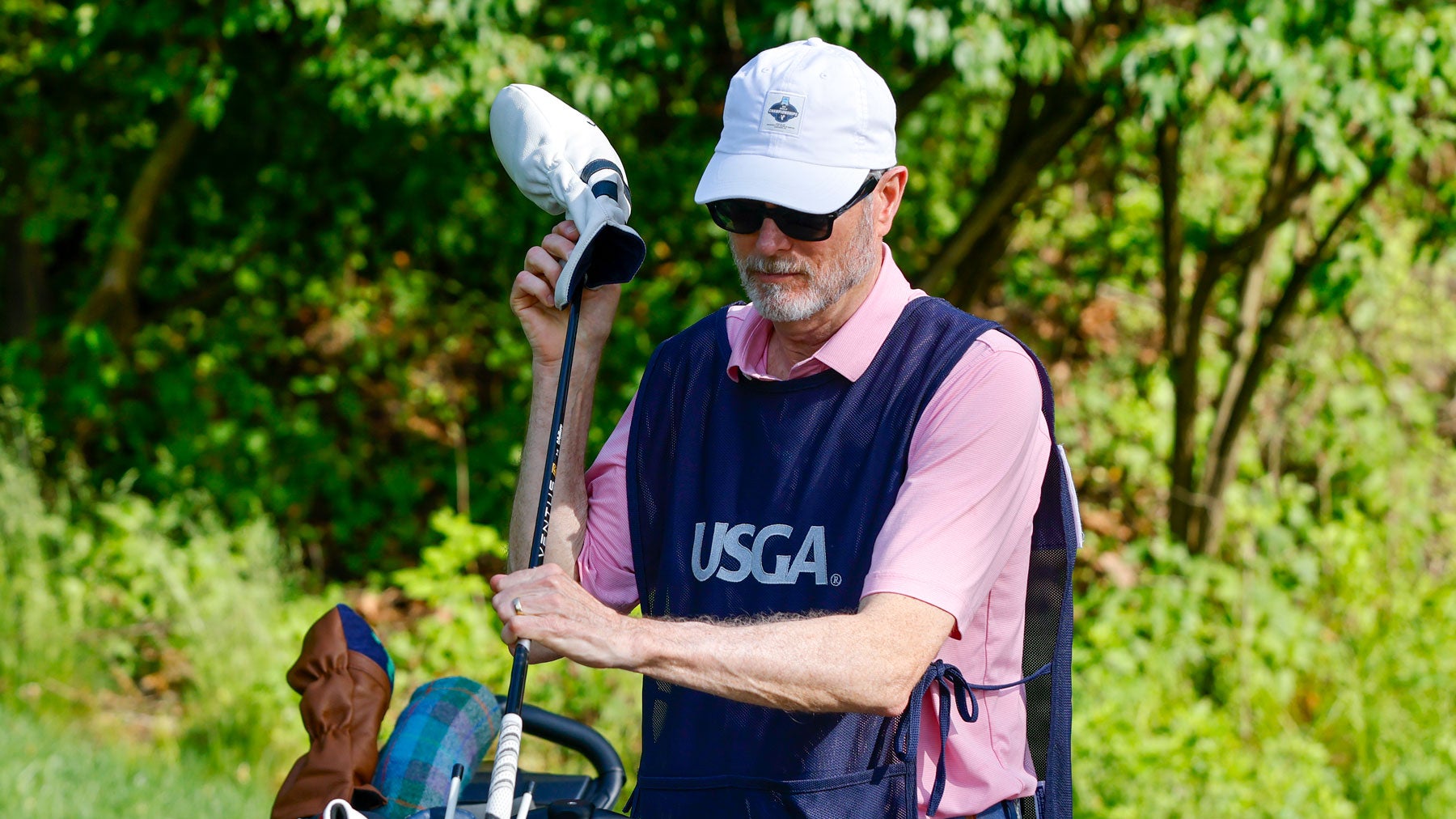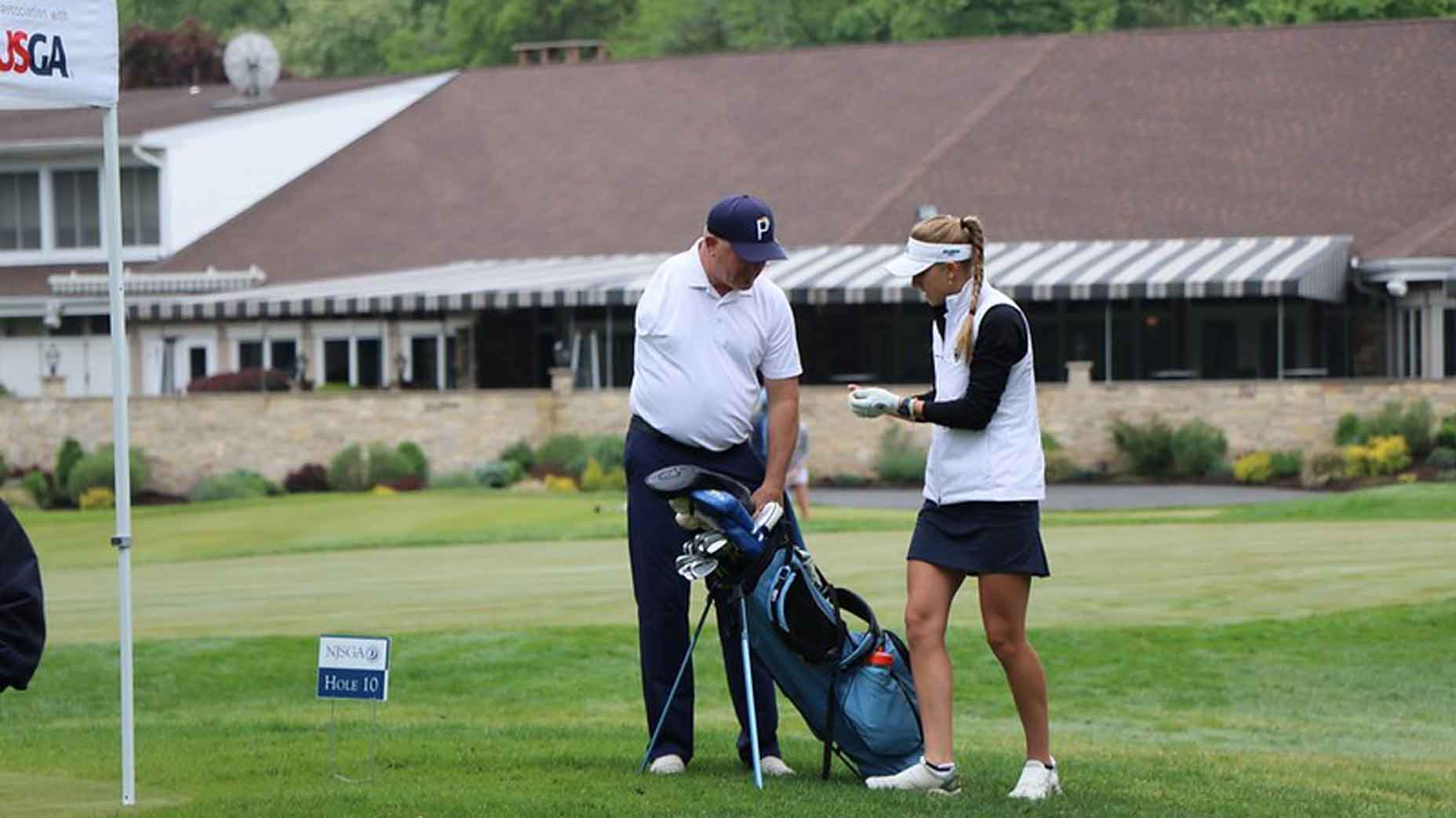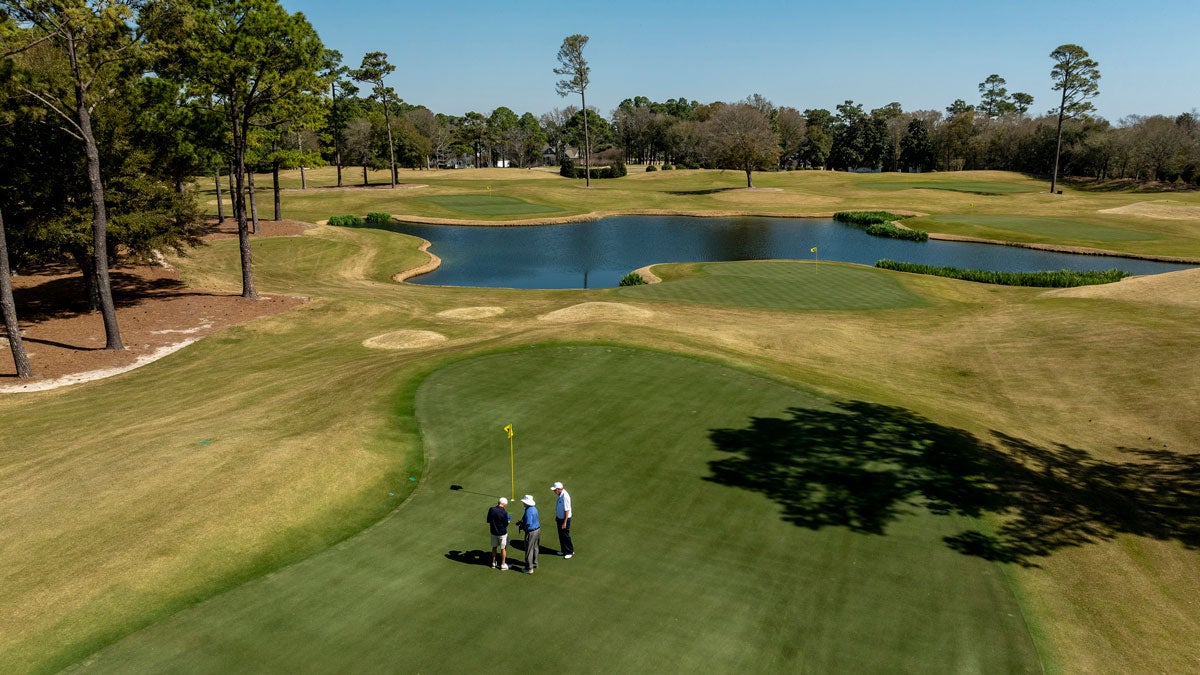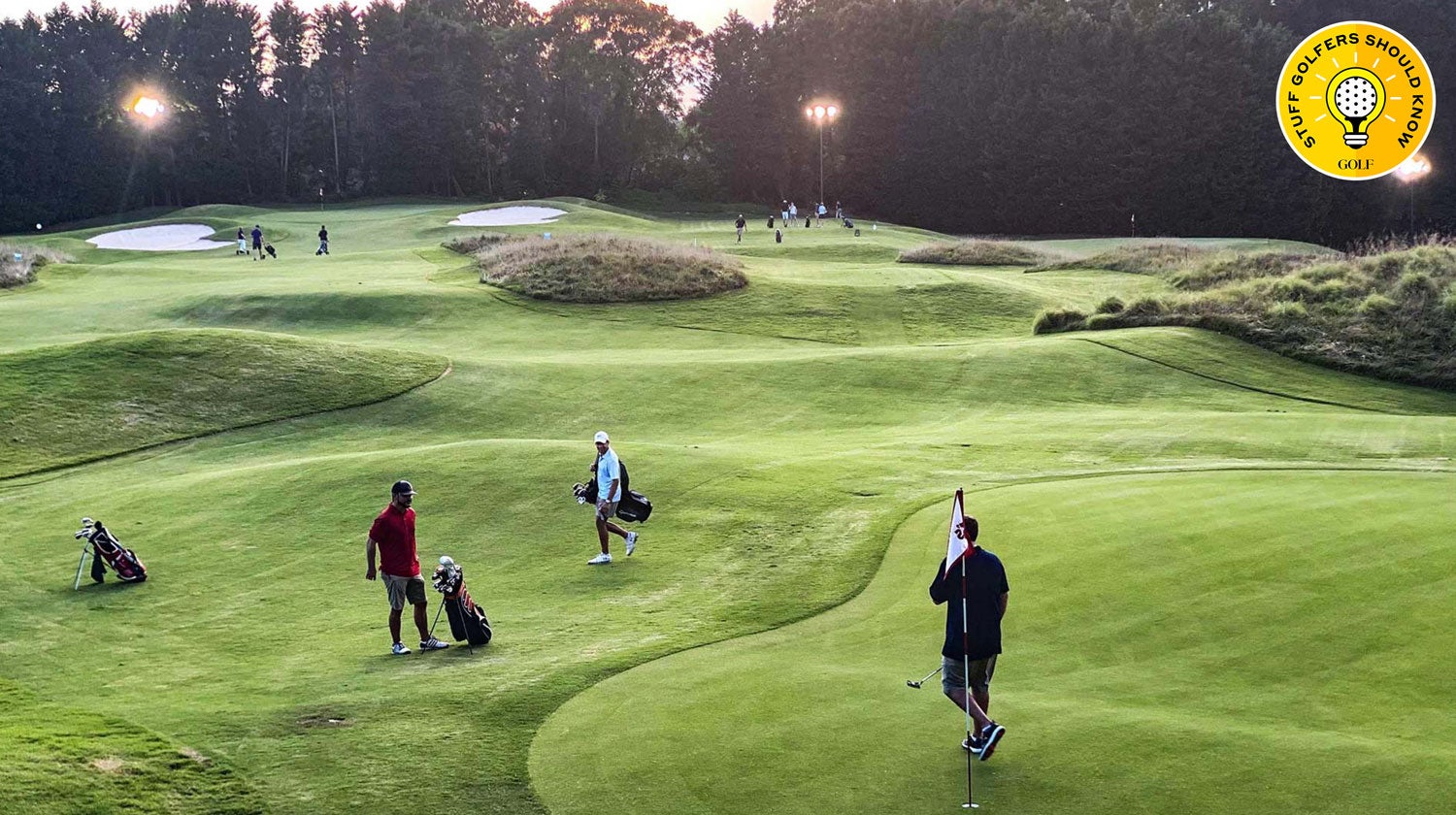How one man’s devotion to golf has helped jump-start thousands of careers

P.J. Boatwright III caddying at the U.S. Amateur Four-Ball on Saturday.
Jonathan Ernst/USGA
Earlier this week, outside the USGA Golf Museum and Library in Liberty Corner, N.J., a lifelong lover of the game named P.J. Boatwright III stood before an audience of kindred spirits, talking about his late father of the same name.
“I told them that whatever path they followed in their careers, I would hope they’d be as fulfilled as my dad was,” Boatwright said in a phone interview.
Boatwright is 68. Many of his listeners were about a third his age, too young to have ever met his father but old enough — and focused enough — to benefit from his legacy. The occasion was a welcome dinner for this year’s entrants into the P.J. Boatwright Jr. Internship Program, a powerful launching pad for careers in golf, named in honor of a man who blazed a bright path in the game.
“I couldn’t imagine a better way for him to be remembered,” his son said.
Raised in South Carolina, the elder Boatwright was an accomplished amateur golfer who won two Carolina Opens, qualified for four U.S. Amateurs and played 72 holes in the 1950 U.S. Open at Merion, won by Ben Hogan. But his professional destiny lay beyond the course.
After serving as the head of the Carolina Golf Association, Boatwright joined the USGA as an assistant director, in 1959, and was named executive director 10 years later. In that role, he came to be acknowledged as the world’s foremost expert on the Rules of Golf, which he helped revise in 1984. He also oversaw course setups for the U.S. Open and other USGA championships.
Boatwright died of cancer in 1991. He was 63. The USGA established the internship program that same year. What began modestly, with 20 interns assisting 13 golf associations around the country, expanded rapidly, nearly quintupling in size by 1997. Today, there are more than 3,300 former Boatwright interns working in golf administration and other sports.
Among them is Anna Kittelson, 23, who was introduced to the game by her grandfather, a golf pro, when she was 12 and went on to compete at the University of Delaware. At one point, Kittelson considered trying to play for living, but after college, while working at a Delaware course, she was exposed to adaptive golf, which inspired her. A different vision for her future began taking shape. Encouraged by a mentor to apply to the Boatwright program, Kittelson earned a scholarship, which funded an internship at the Golf Association of Philadelphia (GAP). That position, which Kittelson started last May, has since given way to a full-time job as GAP’s manager for adaptive golf.
“The internship was so important because it gave me the runway I needed to learn,” Kittelson says. “It opened my eyes to all the different opportunities there are for careers in golf.”

It’s a sentiment echoed by many former Boatwright interns, including Emily Furderer, 31, who parlayed her experience in the program into a job with the First Tee, in Florida, which led to an opportunity with the PGA Tour, where she works today as a senior manager of community and inclusion.
“As a young person, when you think of sports and leagues, you don’t always think of all the different avenues that you can take into the industry,” Furderer says. “It’s sometimes hard for me to believe how much I’ve learned through golf, and how many incredible places this game has taken me.”
The USGA support that helped propel her isn’t intended only for young people starting out. The Boatwright program is open to applicants of all ages and backgrounds. In recent years, scholarships have been given to several candidates in their 40s and 50s who were looking to change careers. Last year, a former high school teacher and military veteran passed through the program.
Golf is like that. It takes root and spreads. As the son of a prominent USGA executive, the younger Boatwright grew up in Connecticut with the game all around him. A successful junior player, he played for a year in college, but, he says, “I never had any aspirations to play professionally.”
He made a career in magazine publishing instead, first as a writer and then as advertising executive before spending seven years as a financial adviser. His work life now behind him, he has remade himself into a musician, writing and performing songs under the stage name Purvis (his initials, like those of his father before him, stand for Purvis James). One of his songs, “Retirement,” includes lyrics that describe how he plans to spend his time.
I’ll play golf, lots of golf, although it makes me mad. I’ll play over and over and over again, because I always have.
As it happens, Boatwright is on the course this weekend, though he’s not playing. He’s caddying. In a fitting bit of symmetry, his sons, Graham, 30, and Jack, 23, both qualified for the U.S. Amateur Four-Ball Championship, which began Saturday at Philadelphia Cricket Club. Boatwright is carrying for Graham, while his daughter, Casey, loops for Jack. His wife, Cathy, a former longtime USGS rules official, also is on hand.
For the Boatwrights, golf is a family affair that connects them to a wider community of people who love the game and, in many cases, earn their livelihoods in it. A reminder came for Boatwright earlier this week, as he addressed an audience that included seasoned USGA executives and fresh-faced interns alike.
“It was very gratifying see how successful the program has been and to hear stories about the positive impact it has had,” Boatwright said. “I know that my father would be very honored. He spent 35 years working in golf, and he loved every minute of it. It was all he ever wanted to do.”













